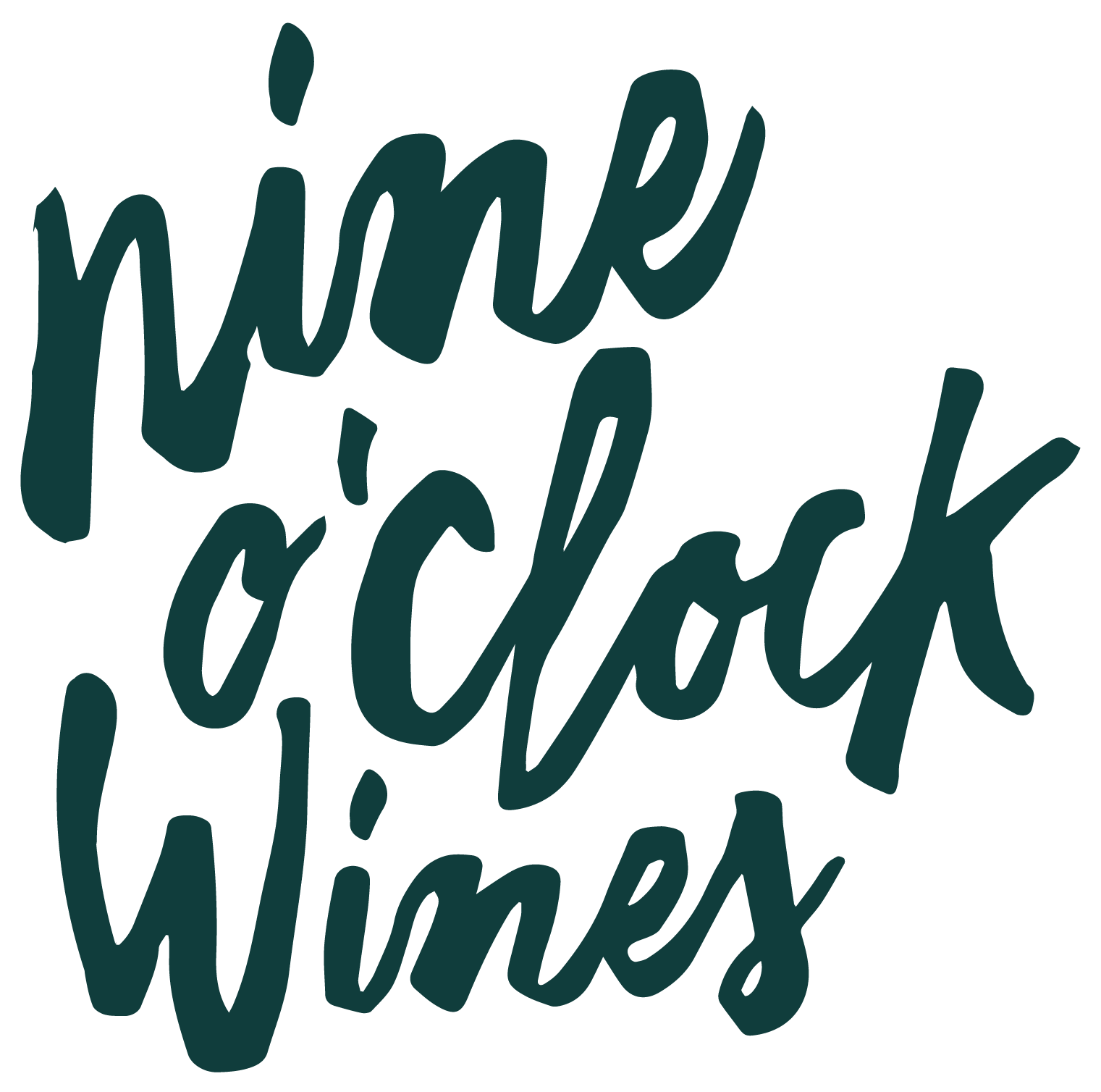Hello friends,
As you may have heard, in mid-March the Trump administration proposed 200% tariffs on wines coming from the European Union, effective in April. This would be an insurmountable blow to the wine industry, not only in Europe, but here in the United States. As most of you are aware, we are a two-woman team. Nine O’Clock Wines is Celine and Christie and we are Nine O’Clock Wines. We love it this way and over the last four years, we’ve made the active choice to remain independently owned and operated. We’ve worked hard to expand the shop, providing more bottles and tasting opportunities of natural wines from around the world.
Wine is a beautiful reflection of the power of international collaboration and labor. As humans, we’ve been making wine for at least 8,000 years. Winemaking traditions have travelled with us and have been innovated upon on almost every continent. Ancient wine regions, like the Levant and the Caucuses birthed European wine regions, which in turn led to wine coming to the Americas. Today, the wine industry is dependent upon global relationships; Portuguese workers cultivate the cork trees for wine corks, German laborers make the vineyard presses and screw caps, and winemakers from all countries share techniques with one another. The wine industry is global, through and through. We share a network of physical and information resources, along with shipping, importing and distributing networks. Tariffs would exert great pressure on the American wine industry, who would find it increasingly hard to access winemaking materials and would majorly disrupt shipping and distribution, as companies begin to close their doors.
While European wine culture and trade has a several thousand year jump on that of the Americas, the U.S. fills a unique niche. We have a lot of land at our disposal. Grapes grown in California, Oregon and Vermont, taste wildly different from those grown in Piedmont, Bordeaux or the Mosel. These differences are a delight to explore and enjoy. The Americas have also been fertile ground for modern viticultural study. We’ve invested in robust agricultural programs that explore hybridization and the effects of climate change in vineyards. Innovation, however, is impossible without the lessons we learn from consistency and tradition. Our cousins in Europe have long worked to preserve their traditions and winemaking standards that have informed quality expectations, sustainability practices and pricing for the entire market. These have come as a result of generations of development and political strife. We benefit from these histories by having well-made wine available to us at a fraction of the cost of wines made in the Americas.
The American wine industry will not benefit from the astronomical tariffs being proposed in retaliation for steel tariffs. Tariffs always disproportionately affect working people and small businesses, more than the large corporations and governmental bodies who impose them. They only serve to create confusion and derision between American working people and European working people. We’re seeing this play out between the U.S. and Canada, with Canadian shops pulling American products, like whiskeys from their shelves in retaliation. This tit-for-tat behavior between politicians comes with increased nationalism and jingoism, polarizing issues in artificial ways that obscure what is really at play. The crises around the world related to capitalism are coming to a head. Instead of our elected officials fighting for workers rights, an economy that functions for the average person, and well-paying jobs, they threaten tariffs they themselves can skirt because of their wealth and power.
We won’t mince words or downplay what we think will happen if tariffs are applied, even at half the rate of the proposed 200% increase. Nine O’Clock Wines, and lots of your other favorite restaurants and wine shops, will not survive under these conditions. Small, independent businesses just cannot compete with larger companies in their race to the bottom in quality, labor standards, and land management practices. Large corporate producers and shops will be the only survivors in a landscape where these tariffs are enacted and remain in place.
We are going to sell you wine for as long as we can, but it is very possible that our fifth year as a business could be our last. It benefits no one for us to accumulate an ocean of debt for an unforeseeable amount of time in the hopes that billionaires decide they don’t need more profit. We’re not throwing in the towel just yet. What will happen is very unpredictable much like other aspects of this period of history. We have some ideas brewing for how we plan to ride out these changes, which we’ll announce shortly and keep you updated. What we ask of you is to keep supporting small businesses like ours and our wine peers who are overwhelmingly AGAINST wine tariffs of any sort.
